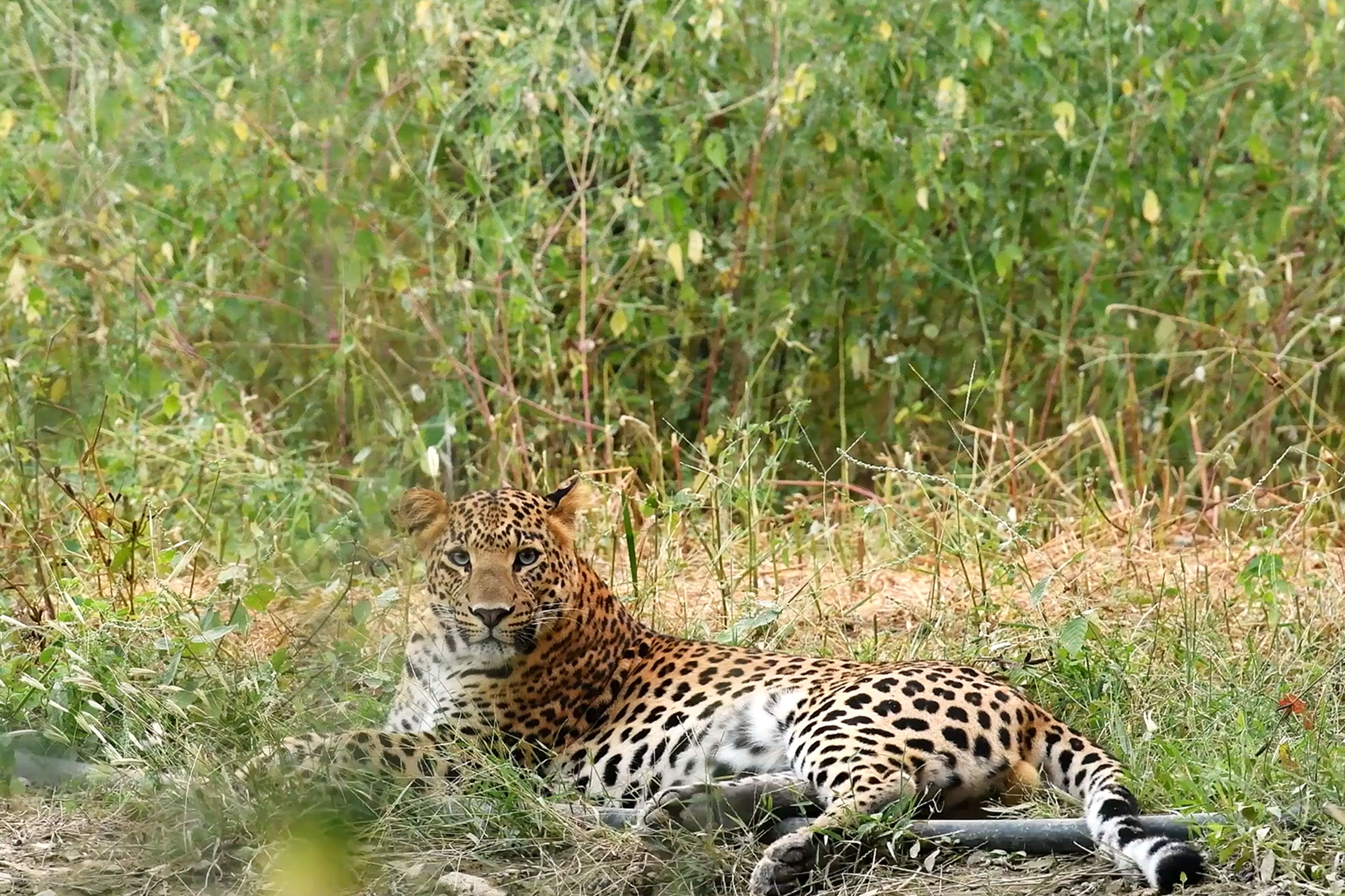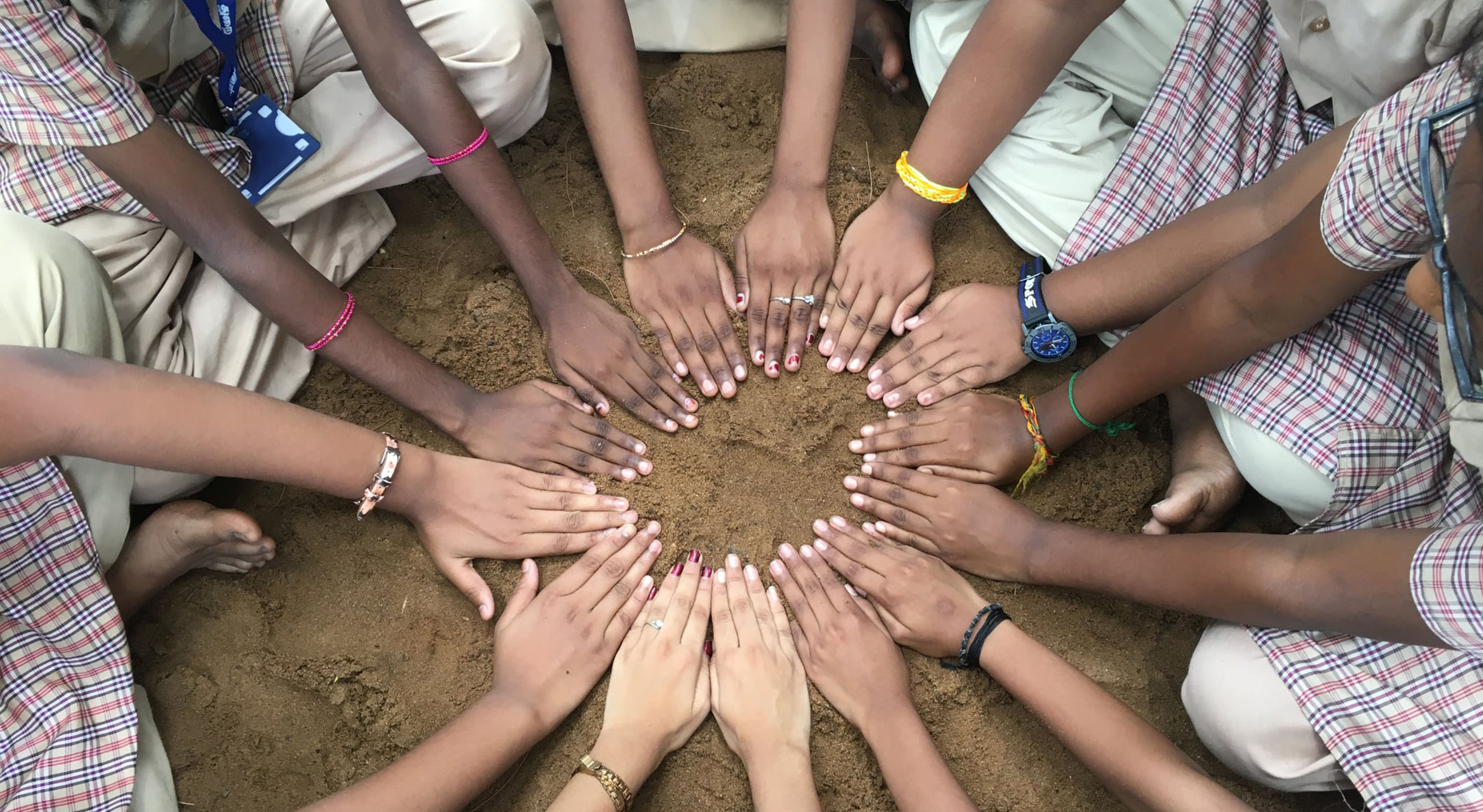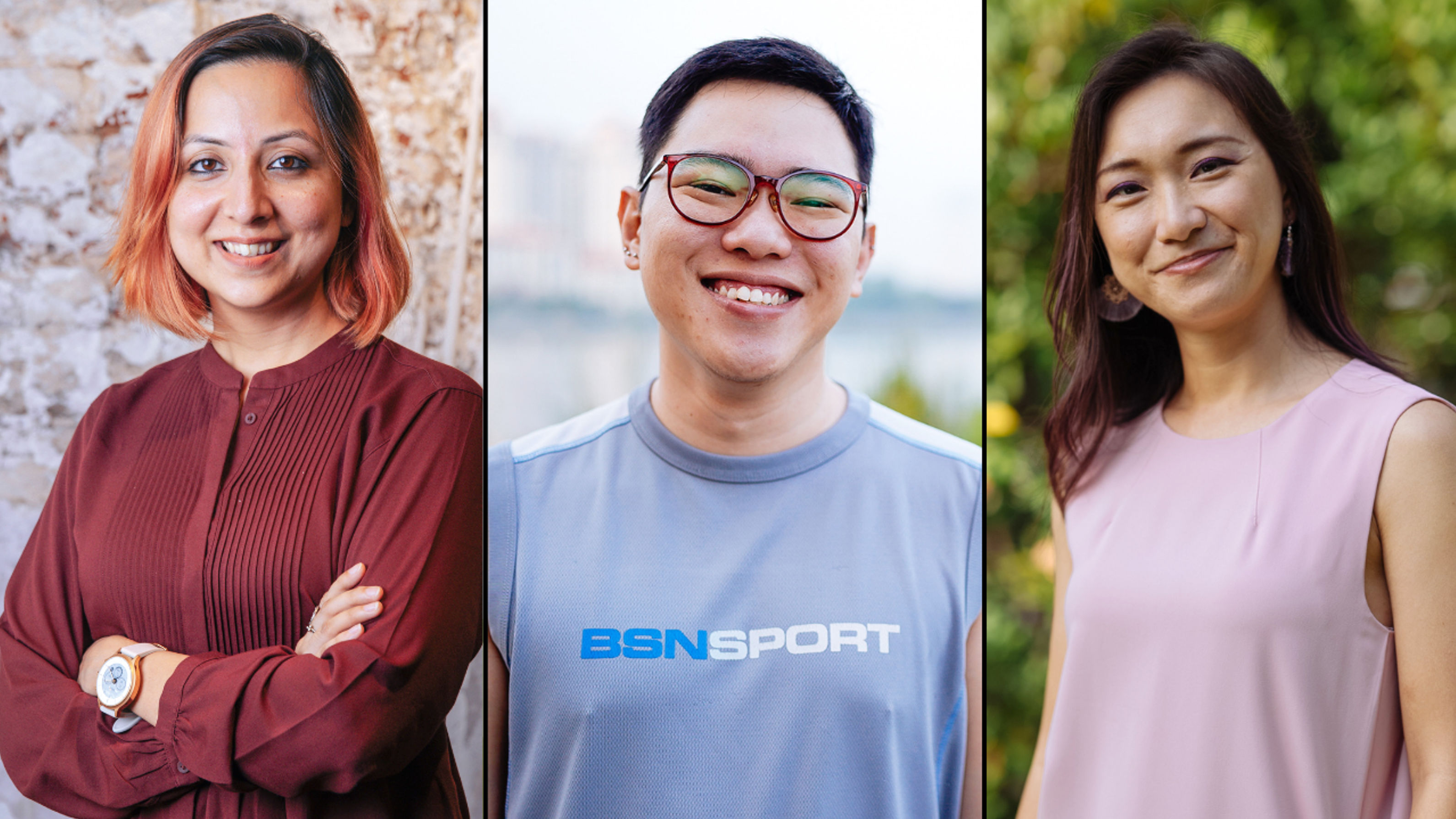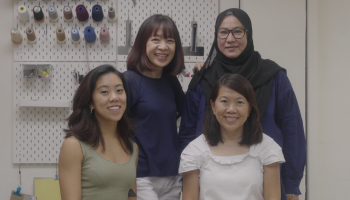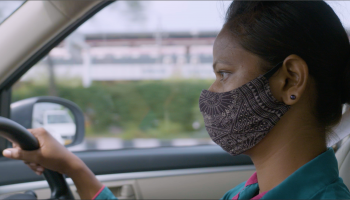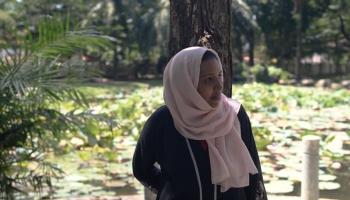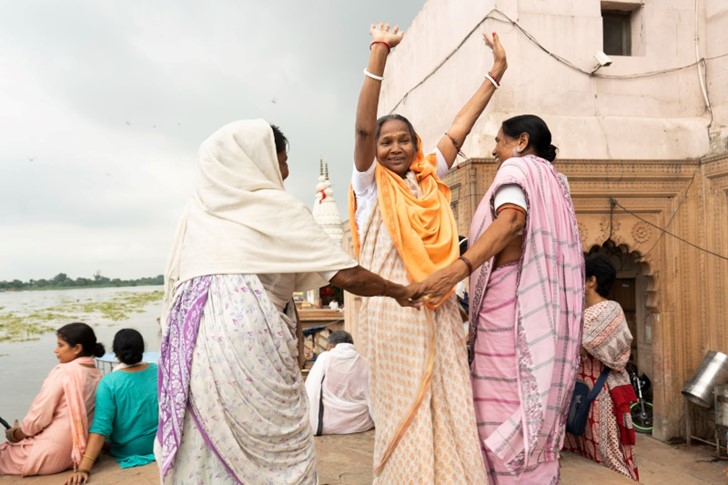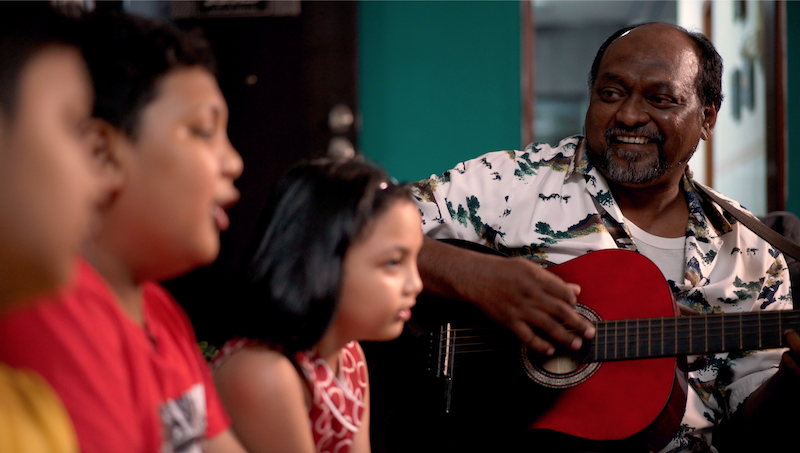Unravelling the Trap of Trafficking, Weaving a New Life
Late afternoon, a mild winter’s day in a village in Assam, India. The laughter of children playing mingles with the clucking of chickens strolling around the yard, occasionally pecking the ground.
Over these sounds, a rhythmic “tok, tok, tok” of wood hitting wood drifts through the air. The sounds are coming from a large wooden loom in the front porch of a nearby house, expertly operated by a weaver. She patiently works the loom to turn colourful yarn into textile, intricate patterns blooming under her hands as she pulls the strands into place.
Watching her is Ella Sangma and a group of children. As they look on, Ella, who manages the weavers, says, “You know what we make with the cloth your mamma weaves? We make dresses from it, we make diaries.”
From these humble beginnings, the textiles become fashionable items sold across India and online by Impulse NGO Network, creating income and a shot at a better life for their makers.
MODERN-DAY SLAVERY
For many living in rural communities in India, a better life often means moving to big cities in search of job opportunities.
The reality is a perilous one. Traffickers prey on vulnerable communities — such as ones with few income prospects or struck by war or natural disasters — by using the dream of a better life as a lure.
But instead of a better life, they are forced to work as sex workers, domestic helpers, factory workers, manual labourers and beggers. Women and girls are also trafficked into forced marriages.
Each year, thousands of trafficking cases are reported to the Indian authorities; between 2011 to 2018, 38,508 cases were reported, based on figures released by India’s National Crime Records Bureau.
The Global Slavery Index estimates that on any given day, 8 million people in India — among them children and teenagers — live in modern slavery, where violence, coercion and deception are used to exploit people against their will.
Ella was once among them. At the age of 11, her mother sold her to traffickers, who brought her to Delhi, and forced her to work.
“They said, ‘You have been sold to us,’” recounts Ella. “I asked, ‘Can a human being be bought and sold?’”
Ella eventually managed to share her plight with a policeman, and was freed in a raid. Later, she testified in court — in the face of death threats — against her traffickers, one of whom was jailed.
Feisty as she is petite, Ella says: “I have faced such difficulties since childhood. I never had the option to be afraid. If one needs to fight for something, then one has to.”
IMPULSE TO ACT
Globally, forced labour is estimated by the International Labour Organization to be a US$150-billion industry, and women and girls make up the majority of people trafficked into slavery.
“We have to start to think of human trafficking as a crime that exists in many countries and many communities,” says Hasina Kharbhih, who founded Impulse NGO Network to tackle the problem.
“It can happen to anybody. Today, even people coming from a middle class family can be highly vulnerable when they are moving for employment opportunities.”Hasina began working in the northeastern city of Shillong in 1987, organising sustainable livelihood initiatives for women, but a bigger issue soon materialised; children were going missing and being trafficked into forced labour in urban areas. With little recourse for help, the women artisans she was working with turned to her.
Impulse was initially set up to create awareness of the trafficking problem. But, realising that there were little resources to support survivors, and little knowledge of how to identify and intervene in trafficking cases, Hasina created a framework — the Impulse Model.
The model brings together the state government, security agencies, legal groups, media and citizen organisations to combat trafficking by pooling knowledge and data. A database was also created to enable easy reporting.
To date, Impulse has supported over 70,000 trafficking survivors by reporting suspected cases to the authorities, facilitating their rescue and reintegration into society, and helping survivors seek legal recourse and compensation.
Its database, the Impulse Case Info Centre (ICIC), which compiles and shares information with Anti-Human Trafficking Units in India, has more than 1,000 NGOs and government agencies in its network, not just in India but also in Southeast Asia.
PREVENTION IS POWER
But can trafficking be prevented from happening at all?
Impulse hopes to at least chip away at one root cause that makes people easy prey for traffickers: lack of income.
It started a social enterprise unit Impulse Social Enterprises, which sets up weaving clusters in rural communities. A master weaver oversees each cluster, training members and ensuring their work is up to scratch. The weavers are paid fair prices for their textiles, which Impulse, collaborating with designers, turn into products for the lifestyle market.
Ella, who manages the weavers, says, “It is better to be at one’s place and earn with dignity. The fact that ‘I can earn’ is empowering.”
She adds, “If I had such a job, if I knew how to weave, maybe whatever happened wouldn’t have happened.”
Weavers earn about US$85 to $100 a month, which supplements traditional sources of income, such as agriculture.
To date, over 30,000 weavers have benefited from Impulse Social Enterprises. From being able to keep their children in school, to having the means to upgrade their homes, the social enterprise is giving women a bigger say in determining their fates.
The work also revives a culture that was in danger of dying out, as such textiles were thought to be no longer fashionable and skills were not being passed down. Impulse ploughs 60 per cent of the profits back into design development and training, to ensure its products stand out in a crowded consumer market.
“You're not buying because you feel sorry for the women. You buy it because it's a beautiful product. You buy it because you want to empower another woman,” notes Hasina.
A COVID-19 LOCKDOWN, BUT TRAFFICKING CONTINUES
As the COVID-19 pandemic spreads across India, Impulse remains firm in its efforts to fight the relentless growth in human trafficking, which remains a threat even with the country on lockdown.
Criminal networks remain active by using technology — such as encrypted communication channels — to facilitate trafficking, and some have even made use of the lockdown to create new ways to carry on their crimes, such as by transporting victims in ambulances, says Hasina. The lockdown has also meant that police resources have been directed towards law enforcement, rather than investigating crimes like trafficking.
Meanwhile, non-profits are struggling with a lack of funding due to the economic fallout of COVID-19 even as the need to tackle trafficking remains urgent. Impulse’s weavers’ incomes have also fallen due to orders drying up and supply chains disrupted by the lockdown, compounded by intense flooding in Assam and around.
To address this, Impulse has launched a fundraiser to support a new initiative, which will see weavers sew face masks, which will be distributed to essential workers as well as rural communities at risk. This will create some income security for its weavers, as the pandemic wears on.
“Our goal is to support women across the region to be able access new markets,” says Hasina. “Unless this occurs, given the economic pressures, it provides a massive boost for human trafficking criminal networks amidst the increased opportunities for criminal networks to traffic and exploit women and children.”
PLANNING FOR THE FUTURE
Hasina has also started the process of further empowering the weavers, by giving weavers over 40 a stake in Impulse Social Enterprises.
“The solution to end slavery is basically economic empowerment. So the big question for me is, well, is [Impulse Social Enterprises] going to be really owned by women?” says Hasina.
“I realised that I'm growing old, they're growing old. They have given so much of their years to Impulse. So do I leave them there, or do they become part of the larger goal? For me, the larger goal is [for them] to be shareholders of the company.”
Ella acknowledges the role Hasina has played in her life and those of other survivors: “There is a saying, ‘The mother who nurtures is greater than the mother who gives birth’. The way Hasina cares for us, no one will.”
She hopes that Hasina’s compassion will rub off on society, creating a more accepting environment for trafficking survivors.
“If people turn away from them, then the survivors feel guilty. They feel it is their fault that they were trafficked,” says Ella. “She thinks, ‘I will rather go back to where I came from.’
“We should talk to them with a free mind and accept them wholeheartedly. I think if society supports them, trafficking will be controlled.”
About Impulse NGO Network
Contributors
Director
Producer
Producer & Writer
Camera
Ranu Ghosh & Ashish De
Sound
Sourav Gupta
Editor
Anuja Thakar
Executive Producer
Audio Mix
Aravind Vijayakumar



